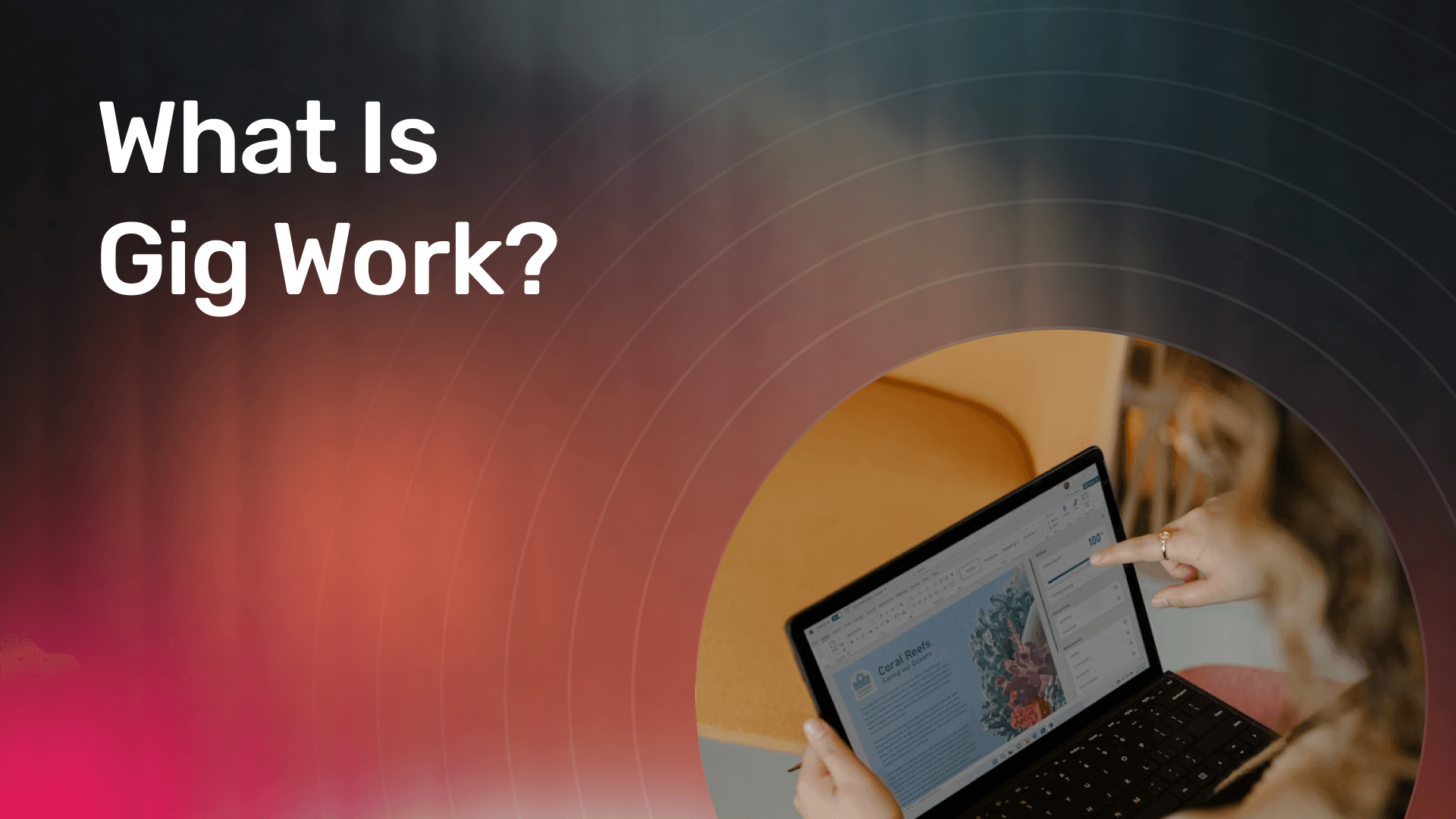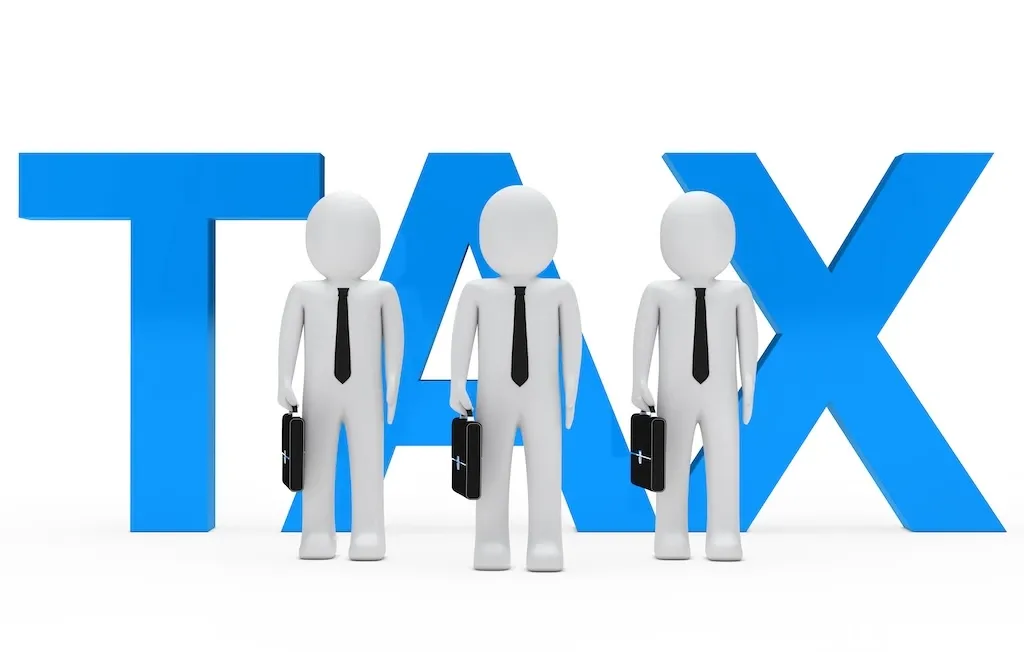What Is Gig Work? A 2025 Guide to the Fast-Changing World of Flexibility
The traditional work schedule as we knew it once is no more. Whether you call it the gig economy, flexible work, or on-demand labour, gig work is reshaping how businesses operate and how individuals earn a living. In 2025, gig work has become a vital part of the global workforce. But what exactly is gig work? How does it differ from freelancing or contracting? And what do employers need to know to stay compliant, competitive, and efficient?
This guide explores everything you need to know about gig work, from key definitions and pros/cons to payment solutions and the future of flexible employment.

What is gig work?
Gig work refers to short-term, project-based, or on-demand jobs that individuals perform without being classified as traditional employees. These roles typically involve flexible hours, no long-term commitments, and compensation based on tasks or projects completed.
Gig workers are often self-employed or work through platforms that connect them with clients or customers. Think ride-share drivers, food delivery couriers, task-based app workers, and even creative professionals hired for one-off projects.

The rise of the gig economy
The gig economy has grown rapidly over the last decade due to advancements in technology, shifting workforce expectations, and business demands for more agile labour solutions. In 2025, economic uncertainty, the rise of AI, and the demand for flexible work-life balance will continue to accelerate this trend.
Key drivers include:
- The proliferation of digital platforms enables remote, project-based hiring.
- Increased demand for flexible jobs among Gen Z and Millennials.
- Businesses seeking scalable, cost-effective labour without long-term contracts.
Common types of gig work
Gig work is incredibly diverse, spanning everything from physical, local tasks to high-level digital services.
Here are some of the most common gig categories found in today’s marketplace, covering a broad range of industries and skill levels:
- Transportation: Ride-hailing (Uber, Bolt), deliveries (Glovo, DoorDash).
- Task-based services: Cleaning, handyman work, pet-sitting (TaskRabbit, Rover).
- Digital gigs: Data entry, graphic design, translation (Upwork, Fiverr).
- Content creation: Influencer partnerships, brand collaborations.
- Skilled short-term work: Tutoring, consulting, coding, legal reviews.

Advantages of gig work
Gig work can offer a wide array of benefits for both companies and individuals, making it an attractive alternative to traditional employment.
Let’s take a closer look at the advantages that gig work provides from both the employer's and worker's perspectives.
For employers
- Cost savings: No need for full-time salaries or benefits.
- Scalability: Easy to ramp workforce up or down as needed.
- Access to global talent: Tap into specialised skills beyond your local market.
- Speed: Faster hiring processes for urgent or one-off tasks.
For employees
- Flexibility: Choose your hours, workload, and clients.
- Autonomy: Work on your terms, often from anywhere.
- Variety: Opportunities across different industries and skill levels.
- Earning potential: Multiple gigs can offer income diversity.
Disadvantages of gig work
While gig work offers flexibility and freedom, it also presents challenges that businesses and workers must carefully manage.
Here are some of the most common downsides of gig work for both employers and workers.
For employers
- Legal uncertainty: Misclassifying workers can lead to fines and penalties.
- Less control: Limited ability to manage schedules or performance.
- Turnover: Gig workers may not be committed to long-term employment.
For employees
- Lack of benefits: No health insurance, paid leave, or retirement plans.
- Income instability: Earnings may fluctuate from month to month.
- No employment protections: Limited job security or legal recourse.

Gig work vs. freelancing vs. independent contracting
Not all flexible work arrangements are the same. While gig workers, freelancers, and independent contractors may seem similar, their legal and functional distinctions are essential, especially for businesses.
Term | Definition | Examples | Level of autonomy | Typical engagement |
| Gig work | Short-term, task-based jobs are often available via platforms | Delivery, ridesharing, and microtasks | Moderate to low | On-demand |
| Freelancing | Project-based work for multiple clients, usually creative or digital | Writing, design, development | High | Short to mid-term |
| Independent contracting | Long-term or specialised work with clear deliverables | Consulting, legal, IT services | High | Medium to long-term |
Legal and financial considerations
Engaging gig workers requires more than just issuing payments—it also involves understanding the legal and financial responsibilities that come with flexible work arrangements.
Below are several key factors businesses and workers must consider to ensure compliance and sustainability.
Taxes
Gig workers are generally responsible for their own tax filings and payments. Employers must ensure proper classification to avoid penalties.
Insurance
Gig workers often lack employer-provided insurance. Some platforms offer basic coverage, but it's usually limited.

Other considerations
- Contracts: Always clarify scope, deadlines, and payment terms.
- Classification: Follow local laws to determine if a worker is a contractor or employee.
- Data protection: Be mindful of GDPR and other compliance regulations when hiring globally.
How to succeed in the gig economy
With competition and demand on the rise, both businesses and workers need to approach gig work strategically to maximise its benefits.
Here are some tips and best practices to thrive in the ever-evolving gig landscape:
- Clearly define expectations for gig roles and responsibilities.
- Use contracts or service agreements to protect both parties.
- Build a reliable pool of vetted gig workers you can rehire.
- Offer competitive rates to attract skilled professionals.
- Invest in tech tools, such as a flipbook maker, to efficiently manage projects, enhance communication, and tools to streamline payments.
Best platforms for gig work in 2025
Navigating the gig economy begins with choosing the right platform. Each one caters to different types of work and worker profiles.
The following table highlights top platforms and what they’re best known for in 2025:
Platform | Category | Best for | Location focus |
| Upwork | Freelancing | Digital professionals | Global |
| Fiverr | Freelancing | Creative & marketing gigs | Global |
| TaskRabbit | Task services | Local, in-person tasks | US, UK, EU |
| Uber / Bolt | Ride-hailing | Transport services | Global |
| Glovo / DoorDash | Food delivery | Delivery drivers | Global |
| Toptal | High-end freelance | Software engineers, finance experts | Global |
| Native Teams | Gig worker management | Payment, compliance, contracts | Global |
How to pay gig workers?
When paying gig workers, especially across borders, businesses must navigate a few extra complexities. First, cross-border compliance is essential, as each country has its own rules regarding contractor classification and tax reporting. Missteps can lead to legal and financial risks, so it’s important to ensure accurate worker classification and local compliance.
Currency conversion and transfer fees should also be taken into account. Paying workers in their local currency helps avoid delays and dissatisfaction, but fluctuating exchange rates can add unexpected costs. Choosing a provider with transparent fees and competitive rates is key.
Tax documentation is another factor. While gig workers typically handle their own taxes, companies may still be required to issue payment records or fulfil local reporting obligations. Keeping accurate, well-organised records is vital for compliance and transparency.
Finally, all payment terms should be clearly outlined in a contract. Define when payments will be made, what triggers them, and how disputes are handled. This clarity protects both parties and ensures a smooth working relationship.
Payment solutions for gig workers: How Native Teams helps
Managing payments for gig workers across multiple countries is complex, but Native Teams makes it simpler.
With Native Teams Gig Pay, you can:
- Pay gig workers in over 85 countries with built-in compliance.
- Generate contracts and invoices automatically.
- Handle tax calculations, deductions, and reporting.
- Offer benefits and insurance to remote workers via our employment infrastructure.
Whether you're hiring one gig worker or building an on-demand team, Native Teams is your trusted partner for secure, legal, and fast payments.

The future of gig work
The gig economy is here to stay, but it's evolving. Expect to see:
- Better legal protections for gig workers.
- Integrated benefits solutions via tech platforms.
- AI-driven gig platforms are matching workers with tasks more efficiently.
- More hybrid work models blend freelance, gig, and part-time roles.
As technology advances and remote-first work becomes standard, the line between gig work and traditional employment will continue to blur.
Conclusion
Gig work offers businesses speed and individuals flexibility, but it also presents challenges related to compliance, security, and consistency. Whether you're a company looking to tap into on-demand talent or a professional exploring new income streams, understanding the dynamics of the gig economy is key to making it work for you.
Key takeaways
- Gig work involves short-term, flexible roles often facilitated by digital platforms.
- It offers benefits like scalability for employers and autonomy for workers.
- Legal and tax compliance is critical to avoid penalties and misclassification.
- Platforms such as Native Teams streamline global gig worker management and payments.
- The gig economy is growing and evolving fast—get ahead by preparing today.
FAQs about gig work
1. How do gig workers get paid?
Typically, through the platforms they work on, or directly via bank transfers, payment apps, or solutions like Native Teams Gig Pay.
2. Do gig workers pay taxes?
Yes, they are responsible for declaring income and paying taxes as self-employed individuals, though this varies by country.
3. Can gig work be a full-time job?
Absolutely. Many individuals piece together multiple gigs to earn a full-time income.
4. What’s the difference between a freelancer and a gig worker?
Freelancers typically undertake larger, project-based work independently, whereas gig workers often complete quick, task-based jobs through platforms.
5. How can I get started in gig work?
Choose a platform aligned with your skills, set up your profile, apply for jobs, and start building a reputation.
